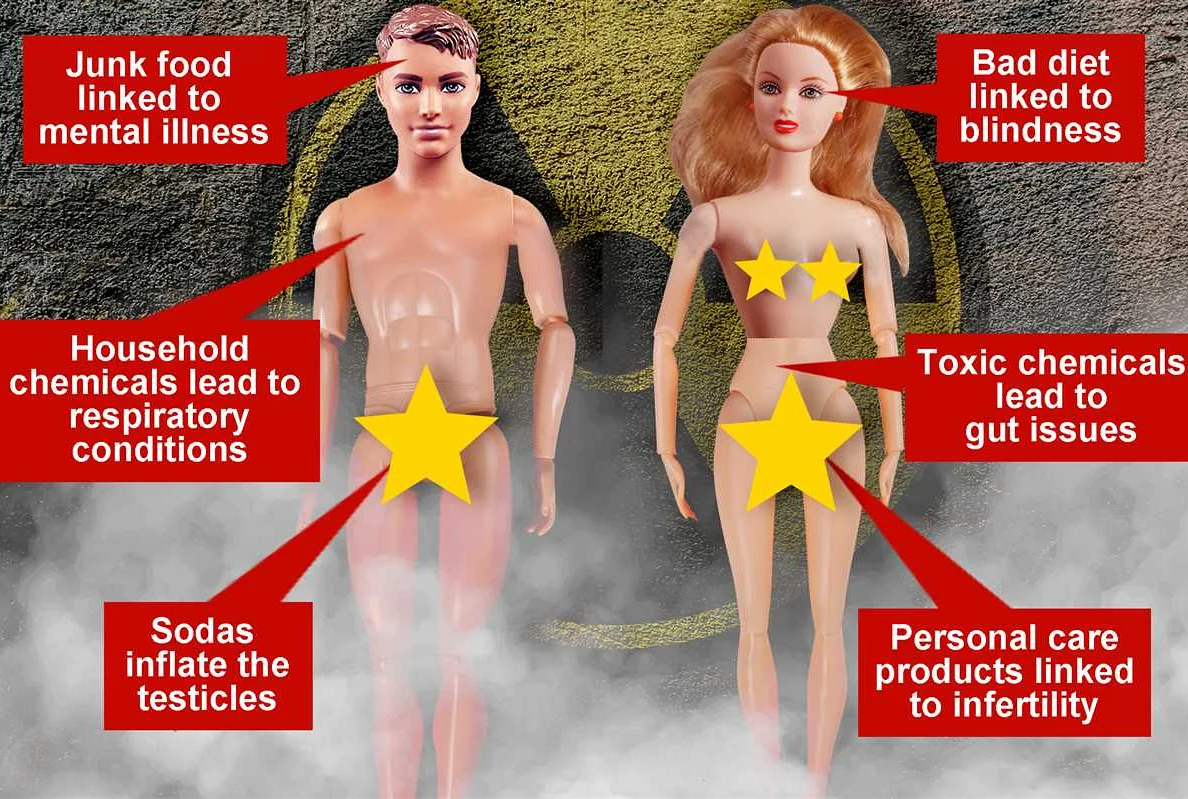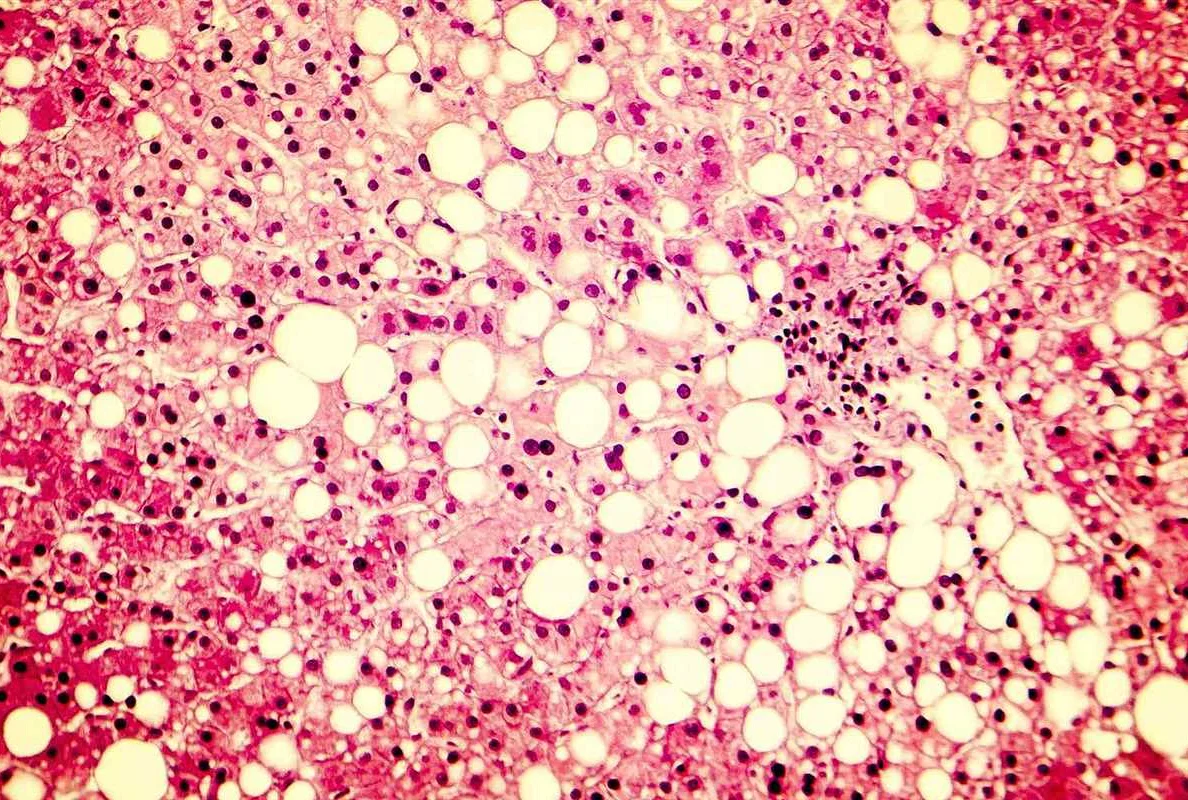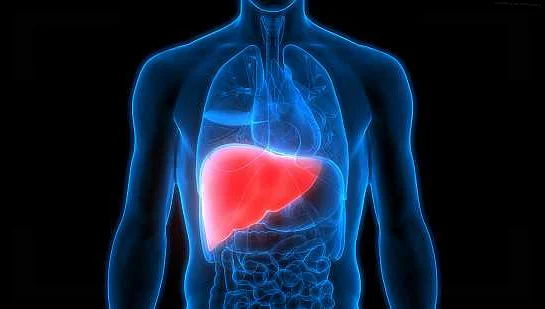US scientists spoke about the liver-damaging poisons we encounter every day
Содержимое
US scientists have revealed a list of everyday poisons that can harm the liver. Find out what common substances to watch out for in order to protect your liver health.
Our livers are constantly at work, filtering out harmful substances to keep our bodies healthy. However, a recent study conducted by US scientists has shed light on the liver-damaging poisons that we unknowingly encounter on a daily basis. These poisons, found in everyday products and activities, have the potential to cause serious harm to our livers over time.
One of the most surprising findings of the study is the presence of toxic chemicals in common household cleaning products. These chemicals, such as ammonia and chlorine, are known to be harmful if ingested or inhaled in large amounts. However, the study reveals that even low-level exposure to these chemicals over a long period of time can contribute to liver damage.
In addition to cleaning products, the study also highlights the liver-damaging effects of certain medications. Over-the-counter pain relievers, such as acetaminophen, can be toxic to the liver if taken in excessive amounts. Prescription medications, including some antibiotics and cholesterol-lowering drugs, have also been linked to liver damage.
Other everyday activities that may be putting our livers at risk include drinking alcohol and consuming processed foods. Excessive alcohol consumption is a well-known cause of liver damage, but even moderate drinking can have a negative impact on the organ. Processed foods, which are often high in sugar, salt, and artificial additives, can also contribute to liver inflammation and fatty liver disease.
While it may be impossible to completely avoid these liver-damaging poisons, being aware of their presence can help us make healthier choices. By reducing our exposure to harmful chemicals, being cautious with medication use, and adopting a balanced diet and lifestyle, we can minimize the risk of liver damage and maintain optimal liver health.
Harmful Effects of Common Cleaning Products

Many of the cleaning products we use on a daily basis contain harmful chemicals that can have serious effects on our health. While these products may effectively clean our homes, they can also damage our livers and have other negative impacts on our bodies.
One common ingredient found in many cleaning products is ammonia. Ammonia releases toxic fumes that can irritate the respiratory system, causing coughing, shortness of breath, and throat irritation. Prolonged exposure to ammonia can also lead to liver damage and other serious health issues.
Another harmful chemical often found in cleaning products is bleach. Bleach is highly corrosive and can cause burns and irritation to the skin, eyes, and respiratory system. Inhaling bleach fumes can also lead to liver damage over time. It’s important to use bleach in a well-ventilated area and avoid direct contact with the skin or eyes.
Many all-purpose cleaners also contain phthalates, which are chemicals that are used to add fragrance to products. Phthalates have been linked to liver damage, hormone disruption, and developmental issues in children. It’s important to choose cleaning products that are phthalate-free to protect our health and the health of our families.
In addition to these chemicals, many cleaning products also contain volatile organic compounds (VOCs) that can be harmful when inhaled. VOCs can irritate the eyes, nose, and throat, and contribute to the development of respiratory issues such as asthma. Long-term exposure to VOCs can also lead to liver damage and other serious health problems.
It’s important to be aware of the harmful effects that common cleaning products can have on our health. Choosing safer alternatives or using protective measures, such as wearing gloves and masks, can help minimize the risks associated with these products. By being informed and making conscious choices, we can protect our livers and overall well-being.
The Hidden Dangers of Everyday Cosmetics
Many of us use cosmetics every day without considering the potential harm they may be causing to our livers. These products, including makeup, skincare, and haircare items, often contain a cocktail of chemicals that can be damaging to this vital organ.
In recent years, scientists have become increasingly concerned about the prevalence of harmful substances in cosmetics. Research has shown that certain ingredients commonly found in these products, such as parabens, phthalates, and formaldehyde, have been linked to liver damage.
Parabens, used as preservatives in many cosmetics, have been found to accumulate in the liver and disrupt its normal function. They can also interfere with hormone levels, leading to further health complications.
Phthalates, which are often used to make fragrances last longer, have been associated with liver toxicity. These chemicals have been shown to disrupt liver cell function and promote the development of liver diseases.
Formaldehyde, a known carcinogen, is used in some nail polishes and hair straightening products. Exposure to this chemical can cause liver damage and increase the risk of liver cancer.
While the amounts of these harmful substances in individual cosmetics may be small, their cumulative effect over time can pose a significant risk to liver health. Additionally, the use of multiple cosmetics containing these ingredients can further increase the level of exposure.
It is important to read product labels and choose cosmetics that are free of these potentially harmful chemicals. Opting for natural or organic alternatives can reduce the risk of liver damage and promote overall well-being.
Protecting our livers from the hidden dangers of everyday cosmetics should be a priority. By being aware of the potential risks and making informed choices, we can safeguard our liver health and enjoy the benefits of beauty products without compromising our well-being.
How Our Diets Contribute to Liver Damage

Our diets play a significant role in our overall health, including the health of our liver. The foods we consume on a daily basis can either support or harm the liver, depending on their nutritional content. Certain dietary choices can contribute to liver damage and increase the risk of developing liver-related diseases.
One of the main contributors to liver damage is excessive consumption of alcohol. Alcohol is a toxin that is metabolized in the liver, and excessive drinking can lead to alcoholic liver disease. This condition can range from fatty liver, where fat accumulates in the liver cells, to more severe forms such as alcoholic hepatitis and cirrhosis.
In addition to alcohol, a diet high in processed foods and added sugars can also contribute to liver damage. These foods are often low in nutrients and high in calories, leading to weight gain and an increased risk of developing non-alcoholic fatty liver disease (NAFLD). NAFLD is characterized by the accumulation of fat in the liver and can progress to more severe conditions such as non-alcoholic steatohepatitis (NASH) and liver fibrosis.
Another dietary factor that can contribute to liver damage is the consumption of excess fats, especially saturated and trans fats. These fats can increase cholesterol levels and contribute to the development of fatty liver disease. Foods high in saturated fats include red meat, full-fat dairy products, and fried foods. Trans fats, commonly found in processed and fried foods, are even more harmful to the liver and can increase the risk of liver inflammation and damage.
Furthermore, a lack of essential nutrients in the diet can also negatively affect the liver. Deficiencies in vitamins and minerals, such as vitamin E, vitamin D, and selenium, can impair the liver’s ability to detoxify harmful substances and protect against oxidative stress. A well-balanced diet that includes a variety of fruits, vegetables, whole grains, lean proteins, and healthy fats can provide the necessary nutrients to support liver health.
| Excessive alcohol consumption |
| High intake of processed foods and added sugars |
| Consumption of excess saturated and trans fats |
| Lack of essential nutrients |
In conclusion, our diets have a significant impact on the health of our liver. Making conscious choices to limit alcohol consumption, avoid processed foods, and prioritize nutrient-rich foods can help prevent liver damage and promote overall liver health.
The Surprising Liver-Toxic Chemicals in Our Homes

Your home should be a safe haven, but did you know that there are hidden liver-toxic chemicals lurking in every room? It’s time to take a closer look at the products we use on a daily basis and how they may be impacting our liver health.
One potential danger is found in common cleaning products. Many household cleaners contain chemicals like ammonia, bleach, and phthalates, which have been linked to liver damage. These chemicals can be inhaled or absorbed through the skin and then make their way to the liver, where they can cause harm.
Another surprising source of liver-toxic chemicals is our personal care products. Many shampoos, lotions, and cosmetics contain ingredients like parabens, triclosan, and formaldehyde, all of which can have negative effects on liver function.
Even the furniture in our homes can be a source of liver damage. Flame retardant chemicals, commonly used in couches, mattresses, and other upholstered items, have been found to accumulate in the liver and cause toxicity over time.
It’s not just the products themselves that can be harmful. The way we use them can also contribute to liver damage. For example, using aerosol sprays in poorly ventilated areas can lead to the inhalation of toxic fumes, which can have a detrimental effect on liver health.
So, what can we do to protect our livers from these hidden dangers? First, be aware of the ingredients in the products you use. Look for natural and non-toxic alternatives whenever possible. Proper ventilation is also crucial when using chemicals indoors. And finally, consider adopting a liver-healthy lifestyle, including a balanced diet, regular exercise, and moderation in alcohol consumption.
By being mindful of the liver-toxic chemicals in our homes and taking steps to reduce our exposure, we can safeguard our liver health and create a safer living environment for ourselves and our families.